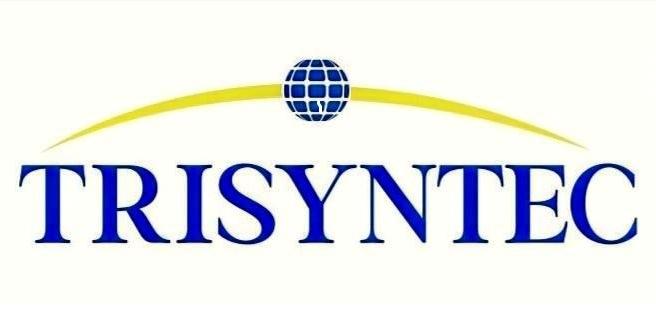
Decentralized Clinical Trials: The New Frontier in Medical Research
Decentralized clinical trials (DCTs) mark a significant shift in the landscape of medical research, integrating cutting-edge technology with patient-centered approaches to revolutionize healthcare. By leveraging telehealth technologies and remote data collection methods, DCTs enable participants to engage in clinical studies from their own homes. This innovative approach not only enhances the efficiency and scope of clinical trials but also makes it possible to include a broader array of participants, especially those from traditionally underrepresented groups. As a result, DCTs are expanding the boundaries of clinical research, making it more inclusive, accessible and reflective of diverse patient needs.
Revolutionizing Patient Recruitment and Retention
Traditional clinical trials often struggle with high dropout rates, sometimes as steep as 60%, primarily due to logistical challenges like the necessity for frequent travel to study sites. DCTs address these issues head-on by allowing participants to engage from their own homes. This key improvement has led to a significant reduction in dropout rates, now closer to 30%. Dr. Prasun Mishra, Co-Founder at Precision BioPharma, US, notes the transformative impact of this approach during a speech at a recent Global Investment Leaders Club gathering focused on the topic, he states: "Decentralized clinical trials offer several advantages, such as increased patient access and diversity. We can engage remotely with diverse populations and many patients, overcoming commute and other hurdles."
The accessibility facilitated by DCTs extends beyond mere convenience, opening the door for individuals with mobility issues or those living in remote areas to participate. This inclusiveness not only improves the quality of the data collected but also enhances the overall efficacy of the clinical research by incorporating a broader spectrum of human health conditions.
Navigating the Regulatory Landscape
As decentralized clinical trials (DCTs) gain momentum, regulatory bodies are keenly developing frameworks to support their expansion. The European Medicines Agency (EMA), while not yet issuing formal guidelines, has begun to outline foundational recommendations expected to evolve into comprehensive regulatory support. These preliminary steps are critical in establishing a robust framework that ensures DCTs meet strict safety and efficacy standards, facilitating their integration into the broader clinical research landscape. Simultaneously, agencies like the FDA are adapting existing guidelines to better accommodate the nuances of DCTs, focusing on aspects such as remote patient monitoring, data security and consent processes. This regulatory evolution is essential for fostering the growth of DCTs, ensuring they remain compliant and effective in a rapidly changing healthcare environment.
Enhancing Demographic Diversity
One of the most significant advantages of decentralized clinical trials (DCTs) is their capacity to attract a more diverse group of participants. Conventional trials frequently capture a limited demographic, which can lead to skewed results and restrict the general applicability of the findings. Recognizing this critical issue, the FDA is actively prioritizing efforts to enhance diversity in clinical trial participation. DCTs facilitate this by eliminating geographical barriers, thereby enabling the inclusion of participants from a wide array of backgrounds. This broadened participant base more accurately reflects the demographic diversity of potential medication users, thereby enhancing the generalizability and relevance of the trial results. Such a shift aligns closely with regulatory objectives and is crucial for ensuring that new treatments are effective and safe for a diverse spectrum of the population, thereby improving health outcomes across various groups.
From Patient Monitoring to People Monitoring
The technological infrastructure of DCTs is underpinned by advanced remote monitoring technologies that are rapidly advancing. Sarper Tanli, Founder at Diginova Health Solutions, UAE, highlights a significant shift in the operational focus of DCTs: from traditional patient monitoring to a more holistic "people monitoring" approach. He explains during a healthcare-focused gathering held by the G.I.L.C., "We are also moving from remote patient monitoring to remote people monitoring, even for remote data gathering. This means we are transitioning from sick care to healthcare, leveraging wearables and biosensors for data collection and improving people's lives and lifespans." This evolution in DCT technology aims to offer a more comprehensive understanding of participants' overall health, moving beyond the narrow clinical parameters typically observed. By doing so, it provides deeper insights and potentially enhances the effectiveness and applicability of research outcomes.
The Economic Impact of Decentralized Trials
Beyond their clinical and regulatory benefits, DCTs also offer substantial cost reductions compared to traditional clinical trials. Traditional methods are financially demanding due to the need for extensive physical infrastructure, staffing and comprehensive participant management. In contrast, DCTs drastically reduce these requirements by leveraging digital technologies that streamline processes and decrease overhead costs. This leads to considerable savings in trial budgets, which can then be allocated to other vital areas of research and development. This reallocation not only enhances resource efficiency but also potentially accelerates the development and market introduction of new treatments, maximizing the impact of research investments.
Conclusion
Decentralized clinical trials (DCTs) represent far more than a mere alternative to traditional research methodologies; they are a fundamental reimagining of the clinical trial process itself. By significantly improving patient retention, broadening demographic diversity and reducing the costs associated with operations, DCTs are set to greatly accelerate the development of new medical treatments. As technological innovations continue to progress and regulatory frameworks adapt to accommodate these changes, the true potential of DCTs will increasingly be realized. This promises to usher in a new era of medical research that is not only more inclusive and efficient but also meticulously tailored to meet the diverse needs of a global population. To discover more insights into the emerging trends and technologies in healthcare and various other sectors and to gain practical knowledge from seasoned investors, be sure to check our schedule and register for one of our upcoming events.




